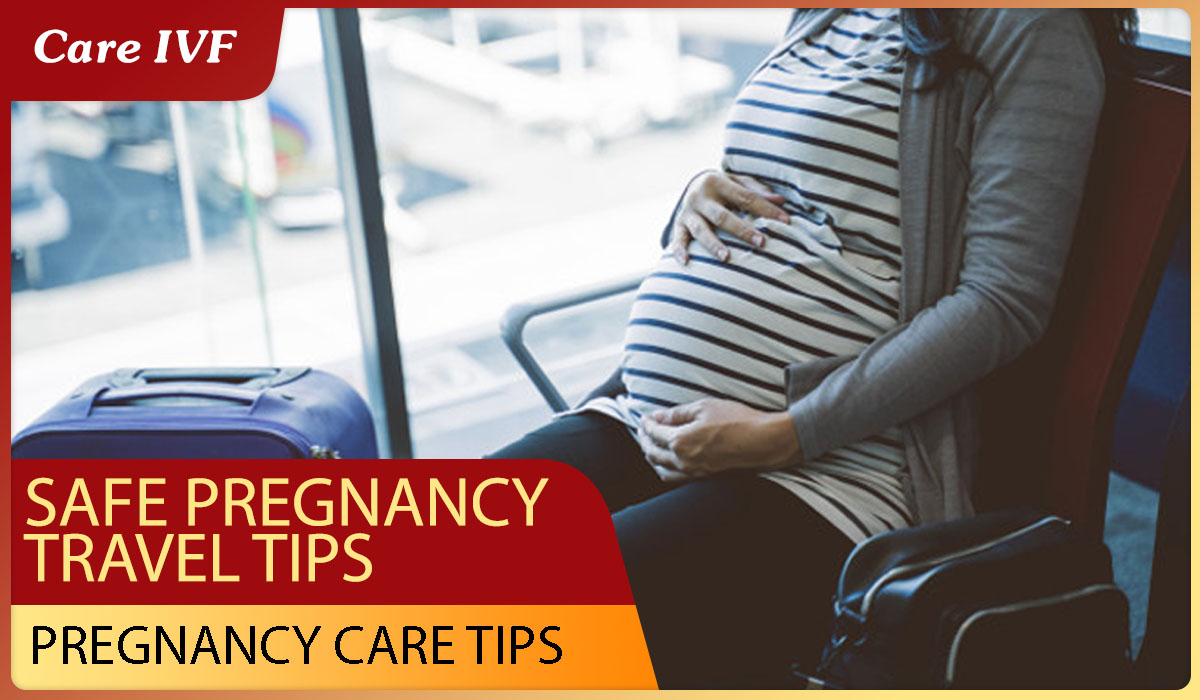

Pregnancy Travel- When to Travel, How to Travel Safe and What to Keep In Mind
TRAVEL DURING PREGNANCY
Many pregnant women are curious to know about the safety of travel plans during pregnancy. These are some FAQs that should help you to decide about planning your “babymoon” safely.
Is travel safe during pregnancy?
For most women, traveling during pregnancy is safe. As long as you and your BABY are healthy, you can travel safely until you are 36 weeks pregnant.
When is the best time to travel during pregnancy?
The best time to travel in the middle of your pregnancy—between weeks 14 and 28weeks. Most common pregnancy problems happen in the first and third trimesters. During mid-pregnancy, your energy has returned, morning sickness usually is gone, and it is still easy to get around. Also in the first trimester, the risk of miscarriage is highest irrespective of travel, whereas in the last trimester, one feels tired and uncomfortable to travel with a bump.
When is travel not recommended during pregnancy?
Travel is not recommended if you have certain pregnancy complications, including high blood pressure, history of early birth in a previous pregnancy, or having had broken waters early or bleeding during pregnancy. Travel also may not be a good idea if you are pregnant with more than one fetus.
What should I do before going on a trip?
There are a few things you can do to make sure your trip is safe and comfortable:
- Schedule a checkup with your obstetrician before you leave.
- Plan to bring any over-the-counter medications that you may need, such as pain relievers, a first aid kit, and prenatal vitamins. Also, bring any prescribed medications.
- Check that you are up to date with your vaccines.
- Think about how long it will take to get to your final destination. The fastest way often is the best.
What is deep vein thrombosis and why is it a concern for pregnant travelers?
Deep vein thrombosis (DVT) is a condition in which a blood clot forms in the veins in the legs or other areas of the body. DVT can lead to a dangerous condition in which the clot travels to the lungs. Sitting or not moving for long periods of time, such as during long-distance travel (more than 4 hours) can increase the risk of DVT. Pregnancy further increases the risk of DVT as substances or proteins which make the blood sticky substantially increases. If you are planning a long trip, take the following steps to reduce your risk of DVT:
- Drink lots of fluids.
- Wear loose-fitting clothing.
- Walk and stretch at regular intervals. For example, when traveling by car, make frequent stops to get out and stretch your legs.
What are some tips for traveling by car?
During a car trip, make each day’s drive as short as possible. Wear your seat belt every time you ride in a car. Buckle the belt low on your hipbones, below your belly. Place the shoulder belt between your breasts. Plan to make frequent stops so that you can move around and stretch your legs.
You can also do some exercises in the car such as flexing and rotating your feet and wiggling your toes. This will keep the blood flowing through your legs and reduce any stiffness and discomfort. Wearing compression stockings while on long car journeys (more than 4 hours) can also increase the blood flow in your legs and help prevent blood clots.
Fatigue and dizziness are common during pregnancy so it's important on car journeys to drink regularly and eat natural, energy-giving foods, such as fruit and nuts.
What are some tips for traveling by plane?
Keep your due date in mind when booking your flight. Complete your flight before you reach 36 weeks of pregnancy. Some domestic airlines restrict travel completely or require a medical certificate during the last month of pregnancy. For international flights and twin pregnancies, the cut-off point often is earlier, sometimes as early as 28 weeks. Check your airline’s policies when planning your trip.
Book an aisle seat so that you can get up and stretch your legs. Plan to do this every 1/ 2 hour or so. Avoid gas-producing foods and carbonated drinks before your flight. Gas expands in the low air pressure in airplane cabins and can cause discomfort. Wear your seatbelt at all times.
When should I seek emergency medical care when traveling?
Go to a hospital or call emergency medical services right away if you have any of the following:
- Vaginal bleeding
- Pelvic or abdominal pain or contractions
- Rupture of the membranes (your “water breaks”)
- Signs and symptoms of preeclampsia (headache that will not go away, seeing spots or other changes in eyesight, swelling of the face or hands)
- Severe vomiting or diarrhoea
- Signs of DVT
Article Tags
About the author

Leave a Comment